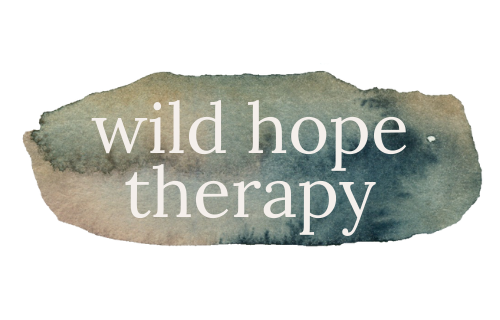how to cope when everything feels out of control
by: amanda winck, lsw
When I chose to write about anxiety and current events, my mind was spinning with a million things I could talk about–covid, monkeypox, gun violence, climate change, racism, sexism, inflation–and then I realized that the problem is being exposed to all of these problems, every day, all of the time. When we have our own anxieties, like work stress, relationships, and family, it can be challenging to make any more emotional room for the anxieties of the world. With unlimited access to the news through social media, we are often bombarded with these topics whether we want to be or not. We are constant consumers of information, and it is taking a toll on all of us.
So, how do you know if you’re anxious? You might have racing thoughts, increased heart rate, and shallow breathing. You might also find it difficult to concentrate, or feel unmotivated. You might get angry easily or feel irritable most of the time. Anxiety can stem from feeling ‘out of control’, and being out of control in many ways has been our reality for years; So, it isn’t surprising that we are feeling our anxiety increase.
Anxiety can sometimes feel like the enemy, but it’s important to remember that it also serves a purpose. It helps us survive by allowing us to assess potential threats around us, referred to as the ‘fight-or-flight response’. Our anxiety is just trying to protect us, even if the same threats our ancestors faced are no longer a threat in modern society.
What if your anxiety feels unmanageable, or is impacting your ability to function? Here are some coping skills that anyone can use to help reduce anxious symptoms:
Focus on what you can control- it can feel like we don’t have control over anything when our anxiety is high. A simple exercise that can help is the ‘circle of control’ exercise. Make a target on a piece of paper- in the center circle, write out things that are inside your control (Ex. what you say, what you do, your behaviors and reactions), and in the outside circle, write out the things that are outside of your control (Ex. what other people think and feel, how others behave). Refer back to this when it feels like you don’t have control.
Limit the amount of time spent online/reading the news/using social media- The news cycle is 24/7, but we don’t have to be! The news will always be there, and it will always be updating. It’s okay to limit the time you allow yourself to stay up-to-date on the latest news. Maybe allow yourself 1 hour per day of online activity, or maybe only 5 minutes! Whatever time feels right to keep your life balanced.
Make time for yourself- I’m sure you’ve heard the term ‘self-care’ being thrown around a lot these days, suggesting that if you take a bubble bath and get a pedicure, you’ll feel better. And that might work for some, which is great. But self-care can also mean:
Saying no to invitations, extra work, or social hangouts–no explanation necessary! Remember that “NO” is a complete sentence.
Listening to guided meditations
Engaging in mindful movement, like yoga or walking
Unplugging from technology, even for an hour- a little goes a long way!
Lighting your favorite candle
Get out into nature (your yard counts!)
Hydrate
Shower or bathe
Stretch
Clean your work area
Spend time with your pet
Rest
Schedule worry time- One of my favorite coping strategies is to schedule worry time every day. This is about giving yourself permission to worry, but only for a limited amount of time. For example, you could set a timer for 30 minutes and allow yourself to worry, either through thinking or writing. When the timer goes off, stop thinking or writing and move on with your day. When worry thoughts come up again (and they will!), tell yourself “This is not worry time, I’ll save this for later”. This can also be helpful when trying to sleep, because anxiety tends to increase during bedtime when we are processing and storing things away- thanks brain!
Anxiety impacts all of us at different times and on different levels. The coping strategies listed above are by no means an exhaustive list, but it is a good starting point! If you’d like to process your own anxieties and have a safe space to process world events, reach out to a therapist at Wild Hope!
